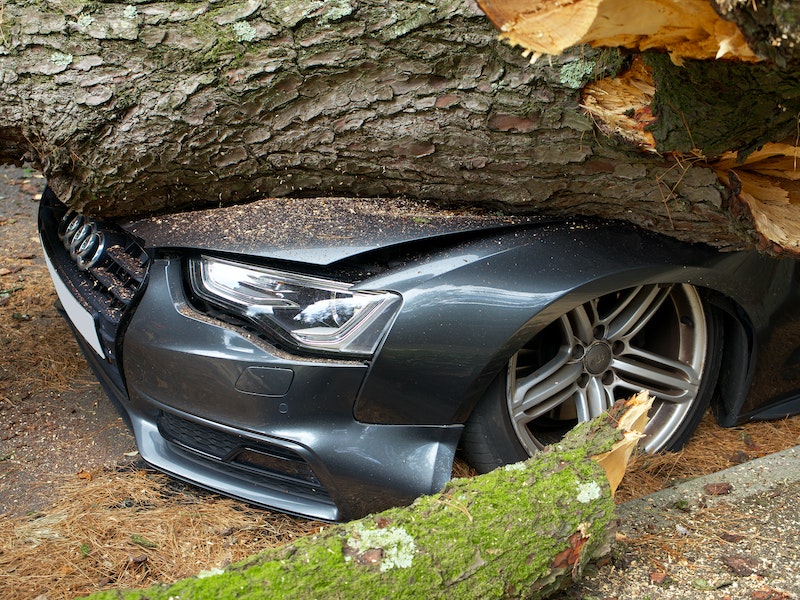
Car accidents can be traumatizing experiences, leaving you shaken and unsure of what to do next.
However, in the aftermath of a collision, one of the most crucial steps you can take is to document everything. From the damage to your vehicle to your injuries and conversations with other parties involved, every detail matters.
In this blog, we’ll explore why documentation is essential and how it can make a significant difference when seeking compensation or dealing with insurance claims. So, let’s dive in and learn why it’s vital to document everything after a car accident.
Going off the beaten path, and documenting everything after a car accident is important to understand the legal significance of what happened. It’s crucial to remember that an ounce of prevention is worth a pound of cure, and having detailed records can save time and money in the long run.
This documentation also serves as evidence in case one or both parties decide to take legal action against each other later. Having clear accounts of what occurred provides clarity and context when reviewing the details of any incident.
Additionally, it helps all parties involved provide accurate information to insurance companies so they can make informed decisions about their policies quickly and efficiently.
It’s clear that documenting a car accident is important, but knowing what exactly to document can be just as crucial.
The key lies in knowing the important components of a car accident case:
By knowing the most important components of your claim, you can better collect and document the evidence needed to build a strong case.
Gathering evidence after a car accident is crucial for anyone involved in one. It’s important to document everything after a car accident as it can help with insurance claims or possible legal proceedings later on.
Obtain information from the other driver and their vehicle. This includes their name, phone number, address, and insurance information. You should also ask for their car’s make, model, and license plate number. It’s important to remember to be polite and cooperative when requesting this information.
Avoid arguments and accuse the other driver of being at fault. Take pictures of the other driver’s car, including damage sustained in the accident. This can be important evidence if there is a dispute over who caused the accident or the extent of damages.
Obtaining witness contact information is crucial to gain a complete understanding of the accident. Collect their full name, phone number, address, and email if possible.
You may want a statement regarding what they saw or heard during the collision. Gather this information immediately after the crash while still at the scene or shortly after that.
Ensure all witness details are written down and kept safe with other documents related to the accident. Having this data readily available when filing an insurance claim can significantly increase the chances of receiving proper compensation for damages.
It’s crucial to document all costs associated with a car accident, including damage to your vehicle. Take pictures and note how much damage was caused, along with the license plate numbers of any other vehicles involved. This documentation can save you from paying for repairs due to a lack of proof or dealing with insurance disputes.
While it may seem tedious, documenting your vehicle’s damage is essential for potential repairs or replacements, providing peace of mind and financial protection. Once you’ve documented all damages, you can move on to tracking medical expenses.
Healthcare costs can quickly add up after a crash. Accurate records of all your payments allow you to provide proof when submitting claims for compensation or reimbursement from insurance companies or other parties involved. Keeping records of your medical bills also serves as evidence if necessary.
For instance, if there are any disputes about who should pay what related to the accident. In addition to tracking individual expenses, it’s helpful to have overall summaries such as invoices from the healthcare provider detailing procedures received and the total cost spent on treatment. It’s a good idea to keep copies of paper and digital documents like emails, texts, and PDFs.
Talking with the insurance company after an accident can be a nightmare.
It’s important to document every conversation and detail while communicating with them. Without keeping track of all conversations, you may face legal troubles if there is any dispute regarding who was at fault or what details were discussed.
You should have records showing when you contacted your insurer and what was said during each call or meeting. Additionally, save copies of emails exchanged between yourself and the company, as they will serve as valuable evidence in the event of any disagreements arising down the line.
It is important to seek professional assistance after a car accident.
A personal injury attorney can provide clear guidance on how to move forward with these cases to ensure your rights and interests are protected. They may also be able to negotiate a settlement agreement with the other party that is more favorable than one you could obtain without their help.
Ultimately, getting professional advice after an accident can make a huge difference in helping you handle all aspects of the incident effectively and efficiently.
Luckily, you’re already halfway there. If you’ve been involved in a car accident, contact our team at DP Injury Attorneys for a FREE consultation today.